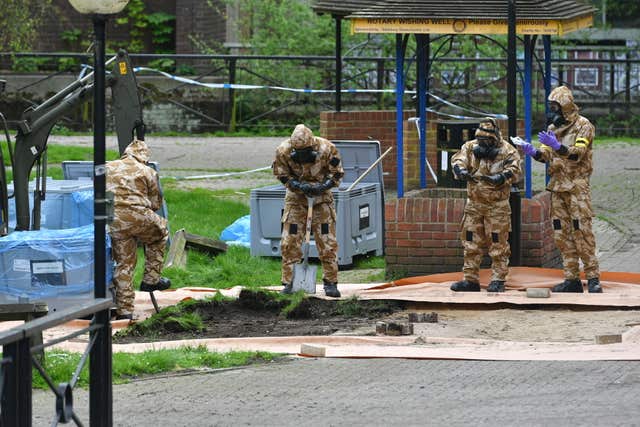/cloudfront-us-east-1.images.arcpublishing.com/jerseyeveningpost.mna/QJO3UWWMANEOVAPEW3B7EYA4NU.jpg)
Scientists confirm Russian opposition leader was poisoned with Novichok
Alexei Navalny fell ill on a Russian domestic flight on August 20.
The German government has said specialist laboratories in France and Sweden have confirmed Russian opposition leader Alexei Navalny was poisoned with the Soviet-era nerve agent Novichok.
A German military laboratory previously confirmed the substance was present in his samples.
German government spokesman Steffen Seibert said the Organisation for the Prohibition of Chemical Weapons has also received samples and is taking steps to have those tested at its reference laboratories.

He said Germany has asked France and Sweden for an “independent review” of its findings using new samples from Mr Navalny.
Mr Navalny, the most visible opponent of Russian President Vladimir Putin, was flown to Germany two days after falling ill on August 20 on a domestic flight in Russia.
Berlin has demanded Russia investigate the case.
Mr Seibert renewed Germany’s demand on Monday that “Russia explain itself” on the matter.
He added “we are in close consultation with our European partners on further steps”.

Russian authorities have prodded Germany to share the evidence that led it to conclude “without doubt” that Mr Navalny was poisoned with a military nerve agent from the Novichok group.
It is the same class of Soviet-era agent that British authorities said was used on former Russian spy Sergei Skripal and his daughter in Salisbury in 2018.
Berlin has rejected suggestions from Moscow that it is dragging its heels.
Mr Seibert would not identify the specialist French and Swedish labs at a regular government news conference.
But the head of the Swedish Defence Research Agency, Asa Scott, told Swedish news agency TT: “We can confirm that we see the same results as the German laboratory – that is, that there is no doubt that it is about these substances.”
French President Emmanuel Macron expressed his “deep concern over the criminal act” that targeted Mr Navalny during a phone call with Mr Putin on Monday, his office said.
Mr Macron confirmed France reached the same conclusions as its European partners on the poisoning, according to the statement.
“A clarification is needed from Russia within the framework of a credible and transparent investigation,” it added.
Asked why no samples have been given to Russia, German Foreign Ministry spokeswoman Maria Adebahr replied: “Mr Navalny was in Russian treatment in a hospital for 48 hours.
“There are samples from Mr Navalny on the Russian side.”
She added Russia has “all the information and all the samples it needs for an analysis”.
Mr Navalny was kept in an induced coma for more than a week as he was treated with an antidote before hospital officials said a week ago that his condition had improved enough for him to be brought out of it.
It is not clear when Berlin’s Charite hospital will next issue an update on his condition.